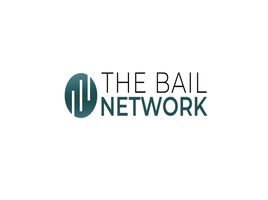Understanding Bail Bonds: What You Need to Know
Bail bonds can be a confusing topic for many. If a loved one is arrested, the thought of getting them out quickly can be overwhelming. Understanding how bail bonds work is crucial to navigating this challenging situation. This article will break down what bail bonds are, how they function, and the legal implications involved, giving you the knowledge you need in a tough time.
What Are Bail Bonds?
Bail bonds are essentially a promise made to the court that someone will return for their scheduled court appearance. When a person is arrested, they may be given the option to pay bail—an amount set by the court—to secure their release until their trial. However, not everyone has the cash on hand to pay the full amount. This is where bail bond agents come in.
A bail bond agent provides a service to individuals who can't afford to pay the bail upfront. They charge a fee—typically 10% of the total bail amount—to post the bail on behalf of the individual. In return, the person must agree to appear in court, and if they don’t, the bond agent has the right to pursue them to recoup their losses.
How Bail Bonds Work
Let’s break it down further:
1. Arrest and Booking: When someone is arrested, they’re taken to a police station for booking. This is when their information is recorded, and they may be given a bail amount.
2. Bail Hearing: A judge will often determine the bail amount based on the severity of the crime, the individual’s criminal history, and other factors.
3. Contacting a Bail Bond Agent: If the bail amount is too high, the arrested individual or their family can contact a bail bond agent.
4. Paying the Premium: The bail bond agent will require a premium, usually non-refundable, which is a percentage of the bail amount.
5. Release from Jail: Once the premium is paid, the bail bond agent posts bail, allowing the individual to be released.
6. Court Appearance: The individual must then appear in court. If they do, the bond is exonerated; if not, the bail bond agent can track them down.
Key Points to Remember
- Non-Refundable Fee: The 10% premium is non-refundable, regardless of the outcome of the case.
- Collateral: Sometimes, bail bond agents may require collateral—such as property or valuable items—especially if the bail amount is substantial.
- Consequences of Missing Court: Failing to appear in court can lead to serious consequences, including arrest warrants and forfeiture of the bail.
Frequently Asked Questions
1. Can anyone get a bail bond?
Yes, anyone can apply for a bail bond as long as they meet the criteria set by the bail bond agent.
2. What happens if I can't afford the premium?
Some bail bond agents may offer payment plans or financing options to help you afford the premium.
3. Is there a difference between bail and bail bonds?
Yes, bail is the amount set by the court, while a bail bond is a service provided by a bail bond agent to cover that amount.
4. How long does it take to get a bail bond?
The process can take anywhere from a few hours to a day, depending on various factors, including the bail amount and paperwork.
Understanding bail bonds is essential for anyone who may find themselves in a situation where they need to secure a release from jail. By knowing how the process works, you can make informed decisions that can save time, money, and stress. Whether it’s for yourself or a loved one, having a clear grasp of bail bonds ensures that you’re not left in the dark when the stakes are high.

